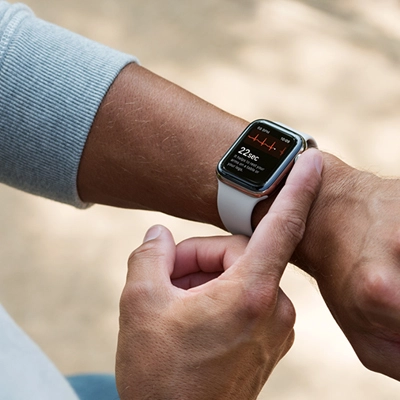
Knowledge is the Key to a Healthy Heart
Learn all about heart health
All About Heart
The heart is a muscular organ having a clenched fist size been divided into four chambers i.e. the right atrium, right ventricle, left atrium, and left ventricle.
Heart Disease
Heart disease, or cardiovascular disease, affects the heart and the blood vessels that supply blood to it. It is a leading cause of death worldwide, including in India. Understanding the causes, symptoms, and prevention of heart disease is crucial for maintaining a healthy heart and reducing the risk of heart attacks and other cardiovascular complications.
Heart Rate and Arrhythmias: Understanding the Basics
The heart rate is an essential indicator of our overall health. A regular resting heart rate is 60-100 beats per minute (BPM). However, it can sometimes become irregular or abnormal, known as arrhythmia. It is when the heart beats too quickly, slowly, or irregularly. There are many different types of arrhythmias caused by various factors.
Frequently Asked Questions
How does the heart work?
The heart works by contracting and relaxing to pump blood. It has four chambers: the right atrium and ventricle and the left atrium and ventricle. Blood enters into right atrium and gets pumped into the right ventricle and thereby transmitted to receive oxygen. The oxygen-rich blood returns to the heart in the left atrium and is pumped into the left ventricle, pumping it out to the rest of the body.
Can I know the risk factors of heart disease?
The risk factors for heart disease include high blood pressure, high cholesterol, obesity, diabetes, sedentary lifestyle, stress, smoking.
How can I reduce my risk of heart disease?
You can reduce your risk of heart disease by adopting a healthy lifestyle, including regular exercise, a balanced diet, not smoking, maintaining a healthy weight, and managing existing health conditions.
Can heart disease be prevented?
Heart disease can often be prevented or delayed by adopting a healthy lifestyle and taking low cholesterol food. Avoid fried food items, smoking and consumption of alcohol.
What are some common heart tests and procedures?
Common heart tests and procedures include electrocardiograms (ECGs), stress tests, echocardiograms, angiograms, and heart cardiac.
Subscribe to Platinum For Heart Newsletter
Sign up now and get free access to our monthly newsletter on Heart health & More
Disclaimer: The information presented by Boston Scientific Corporation is for educational purposes only and does not recommend self-management of health issues. The information should not be treated as comprehensive and does not intend to provide diagnosis, treatment or any medical advice. Individual results may vary and hence, it is advisable to consult your doctor regarding any medical or health related diagnosis or treatment options.
IC-1557009AA-0323

